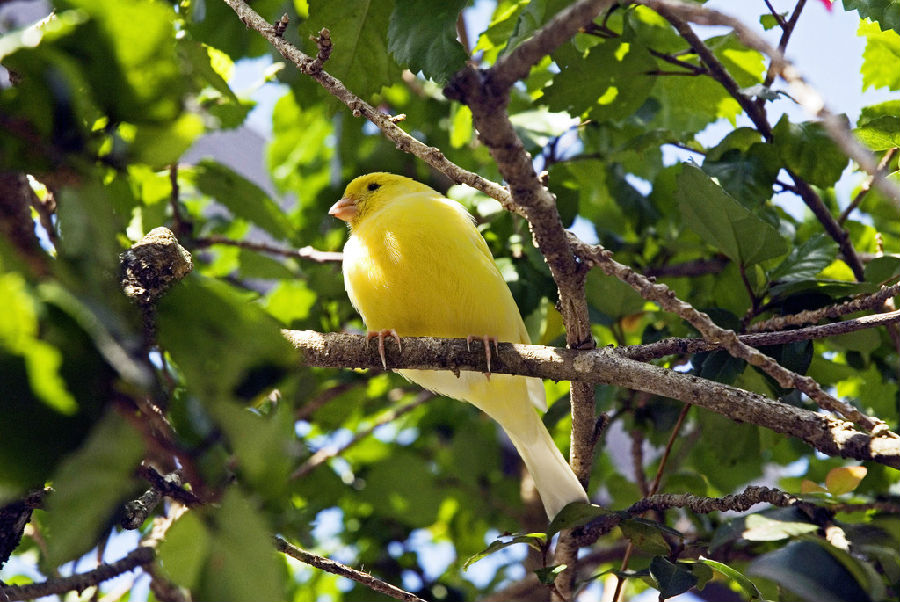This is Scientific American — 60-Second Science. I'm Christopher Intagliata.
Just like humans have to learn to talk, songbirds aren't just born singing—they have to learn to carry a tune. "So in the beginning they just babble." Raissa de Boer, a behavioral ecologist at the University of Antwerp in Belgium. "And they learn from a tutor, so they need an example song in order to learn it."
She says the example song might come from the chick's father. And over time, the baby bird tweaks that tweet, to make it its own. "And then it takes almost a year until they're fully adult, until the next spring, for the final song to come out."
De Boer and her colleagues investigated that song-learning process in canaries, using two groups of baby birds: the first consisted of inbred birds, whose parents were siblings; the second had parents that were unrelated. And the researchers found that the songs of inbred birds and those of the other, outbred birds sound... pretty similar to the human ear. "I cannot tell the difference."

But computer analysis revealed that the inbred birds sang notes at slightly different pitches—and with tones that were not quite as pure. "So basically they sang out of tune, in comparison to outbred birds." The results appear in the Proceedings of the Royal Society B.
And even though our untrained ears have a hard time telling the tones apart, female canaries seemed to notice. They tended to lay smaller eggs, and fewer of them, when they mated with inbred birds as opposed to the better songsters. Suggesting that the quality of a songbird's genes may be revealed in its tunes.
Thanks for listening for Scientific American — 60-Second Science Science. I'm Christopher Intagliata.













